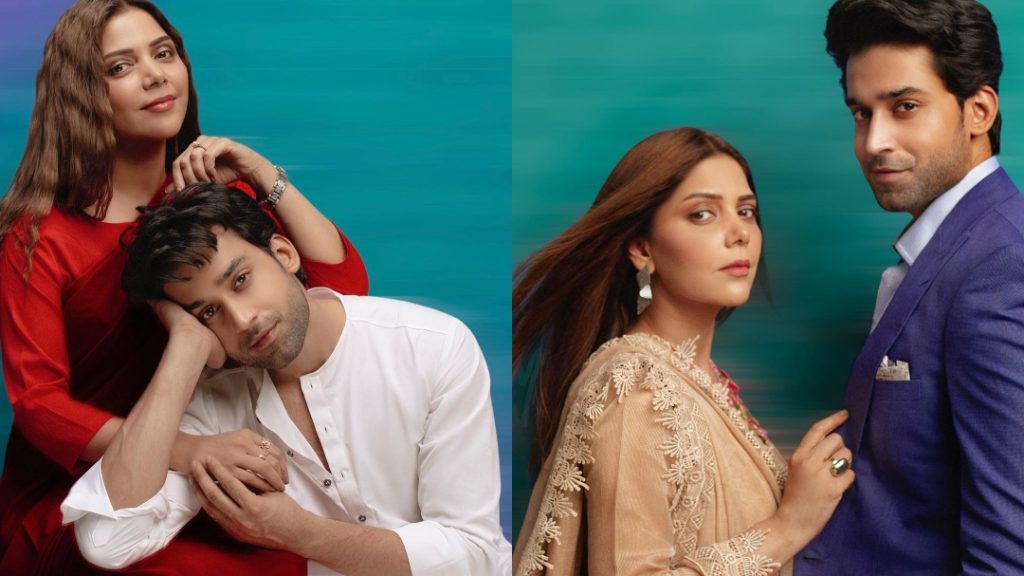“Dobara” doesn’t leave much room to criticize or critique, at least so far. This is a show that has depicted with grace the grief a young woman endures when she is married off at a young age and the freedom she now desires when finally released from those shackles. Starring Hadiqa Kiani, Bilal Abbas Khan, Javed Sheikh, Sakina Samo, Usama Khan, Maheen Siddiqui and others, the story has been written by Sarwat Nazir and directed by Danish Nawaz.
Episode 11 focuses on Mehrunissa’s (Hadiqa Kiani) decision to remarry – but who will she choose. Her first option is Mahir (Bilal Abbas Khan), a young man who she knows is using her for financial gain, while her second option is Ibtisam (Javed Sheikh), a man who is entirely different from her and would be, once again, settling. What’s most refreshing about Dobara, like most of Danish Nawaz directorials, is that it has characters with reasons behind their actions – and a sense of logic. These aren’t dim, one-dimensional characters and if there’s a moment that most stands out, once again, it belongs to Ibtisam and Phupo. Ibtisam has been encouraged by Phupo to chase after Mehru and do his darndest to win her over – but while Ibtisam may be silly, he may be broke and he may be ill, one thing that he isn’t is a manipulator. He has his own reasons for pursuing Mehru, but he makes a great statement to his Bhabi; he cannot marry Meherbano if she doesn’t want to marry him. The concept of force or societal pressure is not one he believes in and he also believes Mehru has the right to choose Mahir, if that’s what she wants for herself. It’s characters like these that shine on our televisions as Pakistani dramas tend to be lacking in these well-etched male roles. Needless to say, Javed Sheikh – and of course, Sakina Samo – is really a joy to watch.
There are several great scenes in this episode, beginning with Mehru’s interaction with her friend. It’s a bit idealistic to see a grown woman encouraging her friend to follow her heart and go after a younger man, because with our societal norms, this would be generous. Still, it’s wonderful to see that Mehru does have that kind of supporting, loving friend in her life who can offer her guidance and encouragement. What’s even better is that Mehru is completely aware of Mahir’s intentions and his reasons for wanting to marry her. This shows that while Mehru may be in a vulnerable position, she is thinking with her head and she hasn’t suddenly lost all semblance of intelligence. Earlier, we were worried that Mehru would find herself being taken advantage of by Mahir, but at this point, the two would be on equal footing, on the same page, if she does agree to marry him.
Of course, Affan (Usama Khan) will not make this easy, whether it’s Ibtisam or Mahir who Mehru marries. This is a young man who believes it’s now his mother’s place to sit at home, enjoy her grandkids and live with the memory of his father. It’s a tragic mentality, but one that is all too realistic. Women in South Asian culture are expected to remain faithful to their partners, even after their deaths and it’s seen as a big deal if a woman remarries. Of course, this is something we’ve inherited from old South Asian concepts of a woman dying along with her dead husband’s remains. It’s great to see this being touched upon and even explained away in accordance with Islam (through Ibtisam’s words). While we all can predict and know how the story will play out from here, it’s a pleasure to watch it unfold week after week, only growing stronger with its content as the story moves on.
